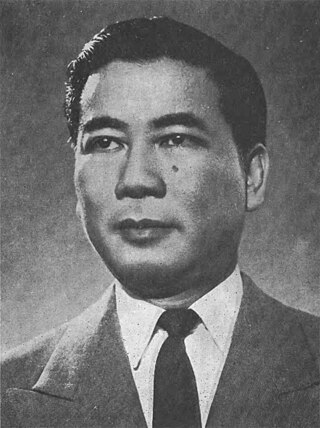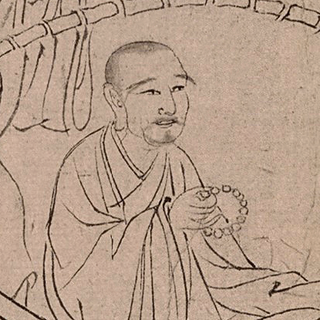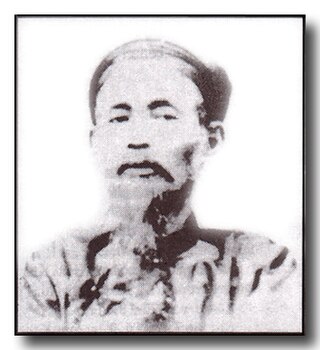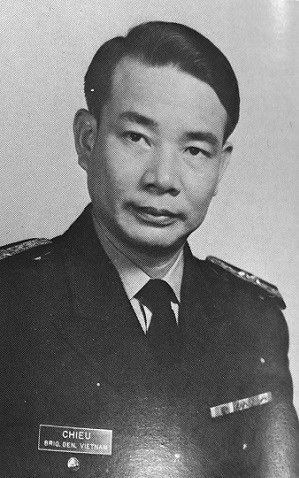See also
- Ngô dynasty
- Wu (surname), the Mandarin Chinese transliteration of the surname
Ngô is a Vietnamese surname.

Ngô Đình Diệm was a South Vietnamese politician who was the final prime minister of the State of Vietnam (1954–1955) and later the first president of South Vietnam from 1955 until his capture and assassination during the CIA-backed 1963 coup d'état.

Nguyễn (阮) is the most common surname of the Vietnamese people.
Traditional Vietnamese personal names generally consist of three parts, used in Eastern name order.

The Trần dynasty,, officially Đại Việt, was a Vietnamese dynasty that ruled from 1225 to 1400. The dynasty was founded when emperor Trần Thái Tông ascended to the throne after his uncle Trần Thủ Độ orchestrated the overthrow of the Lý dynasty. The Trần dynasty defeated three Mongol invasions, most notably during the decisive Battle of Bạch Đằng River in 1288. The final emperor of the dynasty was Thiếu Đế, who was forced to abdicate the throne in 1400, at the age of five years old in favor of his maternal grandfather, Hồ Quý Ly.
Vietnamese literature is the literature, both oral and written, created largely by the Vietnamese. Early Vietnamese literature has been greatly influenced by Chinese literature. As Literary Chinese was the formal written language for government documents, a majority of literary works were composed in Hán văn or as văn ngôn. From the 10th century, a minority of literary works were composed in chữ Nôm, the former writing system for the Vietnamese language. The Nôm script better represented Vietnamese literature as it led to the creation of different poetic forms like Lục bát and Song thất lục bát. It also allowed for Vietnamese reduplication to be used in Vietnamese poetry.

The Personalist Labor Revolutionary Party, often simply called the Cần Lao Party, was a Vietnamese political party, formed in the early 1950s by the President of South Vietnam Ngô Đình Diệm and his brother and adviser Ngô Đình Nhu. Based on mass-organizations and secret networks as effective instruments, the party played a considerable role in creating a political groundwork for Diệm's power and helped him to control all political activities in South Vietnam. The doctrine of the party was based on the Person Dignity Theory.

Trần Nhân Tông, personal name Trần Khâm, temple name Nhân Tông, was the third emperor of the Trần dynasty, reigning over Đại Việt from 1278 to 1293. After ceding the throne to his son Trần Anh Tông, Nhân Tông held the title Emperor Emeritus from 1294 to his death in 1308. During the second and third Mongol invasions of Đại Việt, the Emperor Nhân Tông and his father the Emperor Emeritus Thánh Tông were credited with the decisive victory against the Yuan dynasty and would thenceforth establish a long period of peace and prosperity over the country.

Lệ Thủy is a district of Quảng Bình province in the North Central Coast of Vietnam. The district borders Quảng Ninh district on the north, Vĩnh Linh district on the south, Laos on the west. Lệ Thủy central is 40 km south of the provincial capital Đồng Hới. The district government seat is Kiến Giang Township. The district area is 1420.52 km2, population: 140,804 (1998). Lệ Thủy district is home to Võ Nguyên Giáp and the family of Ngô Đình Diệm. Economy bases on agriculture, mainly rice culture. Mỹ Trạch massacre by French army happened here on 29 November 1947.

Emperor Quang Trung or Nguyễn Huệ, also known as Nguyễn Quang Bình, or Hồ Thơm was the second emperor of the Tây Sơn dynasty, reigning from 1788 until 1792. He was also one of the most successful military commanders in Vietnam's history. Nguyễn Huệ and his brothers, Nguyễn Nhạc and Nguyễn Lữ, together known as the Tây Sơn brothers, were the leaders of the Tây Sơn rebellion. As rebels, they conquered Vietnam, overthrowing the imperial Later Lê dynasty and the two rival feudal houses of the Nguyễn in the south and the Trịnh in the north.

Ngô Đình Khả was a high-ranking Catholic mandarin in the Court of the Emperor Thành Thái of Nguyễn dynasty in Huế, Vietnam. He helped establishing the Quốc Học in Huế and was also a confidant to the emperor. He strongly opposed the French dominance of the Hue Court and when the French grew tired of Emperor Thành Thái's attempts to rein in their growing influence, Khả was the only member of the Council of Ministers to refuse to sign a petition requesting the emperor's abdication. This led to him gaining widespread renown for his loyalty. However, it also led to his removal from the court and his subsequent banishment to his home village. Kha is best known for being the patriarch of the Ngô Dinh family, which was the most prominent Vietnamese Catholic family. His son Ngô Đình Diệm was the first president of South Vietnam and his son Ngô Đình Thục was the third Vietnamese Catholic Bishop. Khả has sometimes been seen as a collaborator with the French. However, more recent scholarship has shown that he may be a forgotten nationalist.
Dương is a Vietnamese surname, an estimated 1% of the Vietnamese population shares the last name.

Lê Xuân Nhuận, also known as Nhuan Xuan Le, is a Vietnamese American poet and writer. He has been a participant in Who's Who in New Poets, inducted as a member of the Poets' Guild, and elected by The International Society of Poets into the International Poetry Hall of Fame under the pen name Thanh-Thanh.

Bùi is a common Vietnamese surname, ranked 9th among the most common surnames in Vietnam. The surname Pei (裴) in Chinese and Bae (배) in Korean share the same origin with it.
Prince Chiêu Minh Trần Quang Khải (1241–1294) was the third son of Trần Thái Tông, first emperor of the Trần dynasty of Vietnam. Being the younger brother of the Emperor Trần Thánh Tông and holding the position of grand chancellor of the Trần dynasty for many years, Trần Quang Khải was one of the most important figures of the Trần family and the royal court during the reigns of emperors Thánh Tông and Nhân Tông. In the second war of resistance against the Mongol invasion, Trần Quang Khải and Trần Hưng Đạo were two key commanders of the Đại Việt army who helped the Emperor defeat the troops of Kublai Khan's son prince Toghan. Besides his military and administrative activities, Prince Chiêu Minh was also a famous poet and was credited as the creator of the dance of flowers. Today, Trần Quang Khải is still considered one of the most famous historical figures of the Trần dynasty and is worshiped in several temples in Vietnam.
Đinh Xuân Quảng was a Vietnamese judge and a politician who helped institute a new constitution for South Vietnam. Đinh Xuân Quảng was one of the main advocates of the “Nationalist solution” in the efforts to regain independence from France after World War II – an independence which could ultimately be settled through negotiations and peaceful means. He participated throughout this resolution process and negotiated various agreements with France. His efforts led to the abrogation of the Patenotre Treaty in 1884 which had placed Vietnam under a protectorate of France.

The Battle of Ngọc Hồi-Đống Đa or Qing invasion of Đại Việt, also known as Victory of Kỷ Dậu, was fought between the forces of the Vietnamese Tây Sơn dynasty and the Qing dynasty in Ngọc Hồi and Đống Đa in northern Vietnam from 1788 to 1789. It resulted in the failure of the Chinese to restore the last Lê emperor Chiêu Thống, who had been usurped by the Tây Sơn. It is considered one of the greatest victories in Vietnamese military history.

Nguyễn Xí, or Lê Xí, was a general, politician, and public servant who served as a minister for four generations of rulers during the late Lê dynasty.

Phạm Xuân Chiểu was an infantry general of the Army of the Republic of Vietnam, with the rank of Lieutenant General. He came from the Martial Arts School established by the Army of Vietnam Nationalist Party in the Northwestern region of North Vietnam, training Vietnamese people in parties to serve the resistance forces. Some later joined the French Union Army. During his time in the army, he was always assigned to take on positions related to consulting, so the consulting field can be considered as his specialty. He was also one of the few officers promoted to the rank of general during the First Republic period. This proves that he himself was favored by President Ngô Đình Diệm. However in the 1963 coup, he was a member of the leading group of generals.